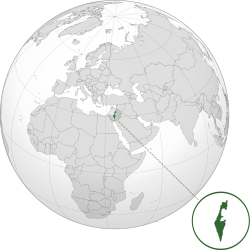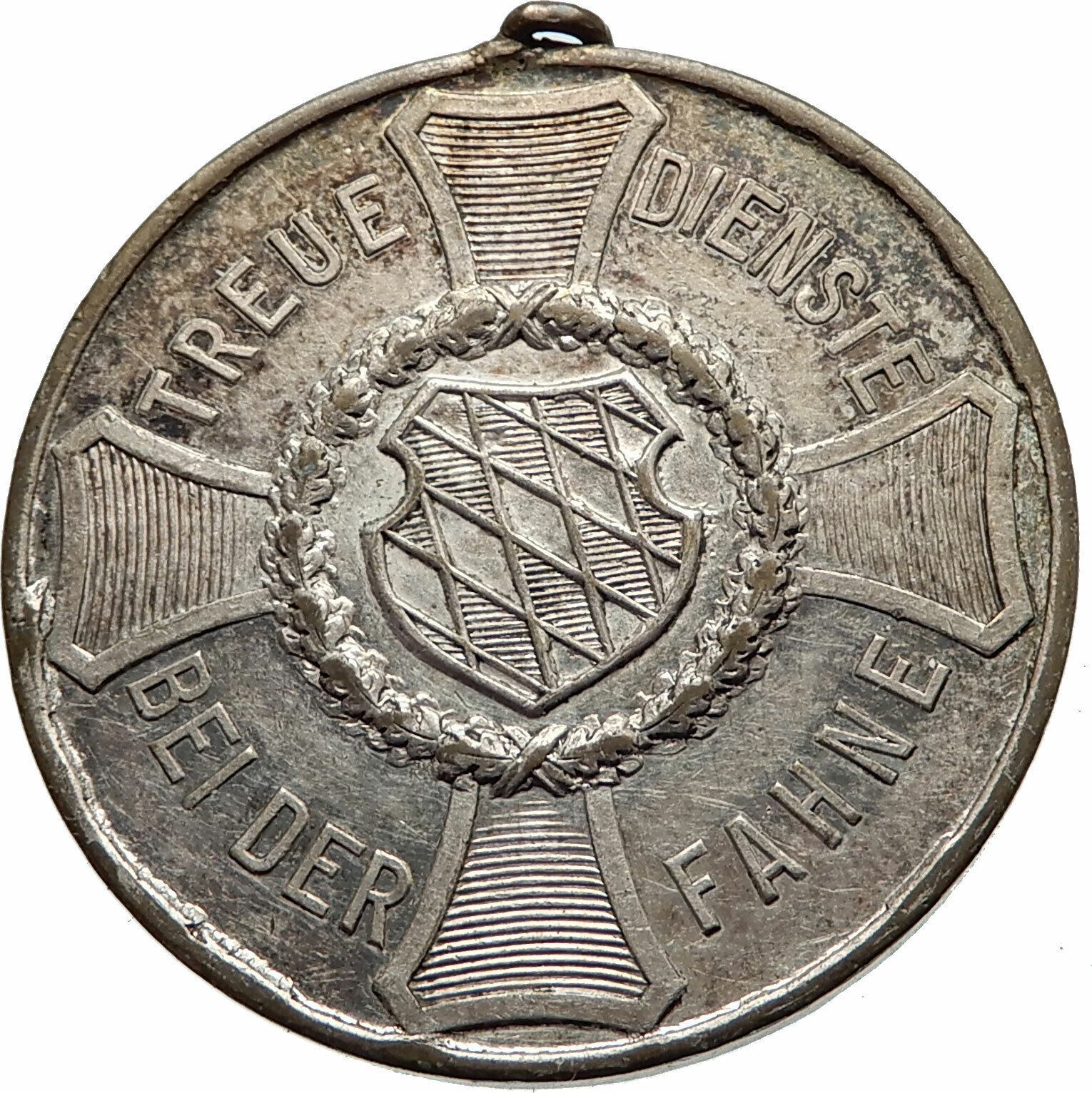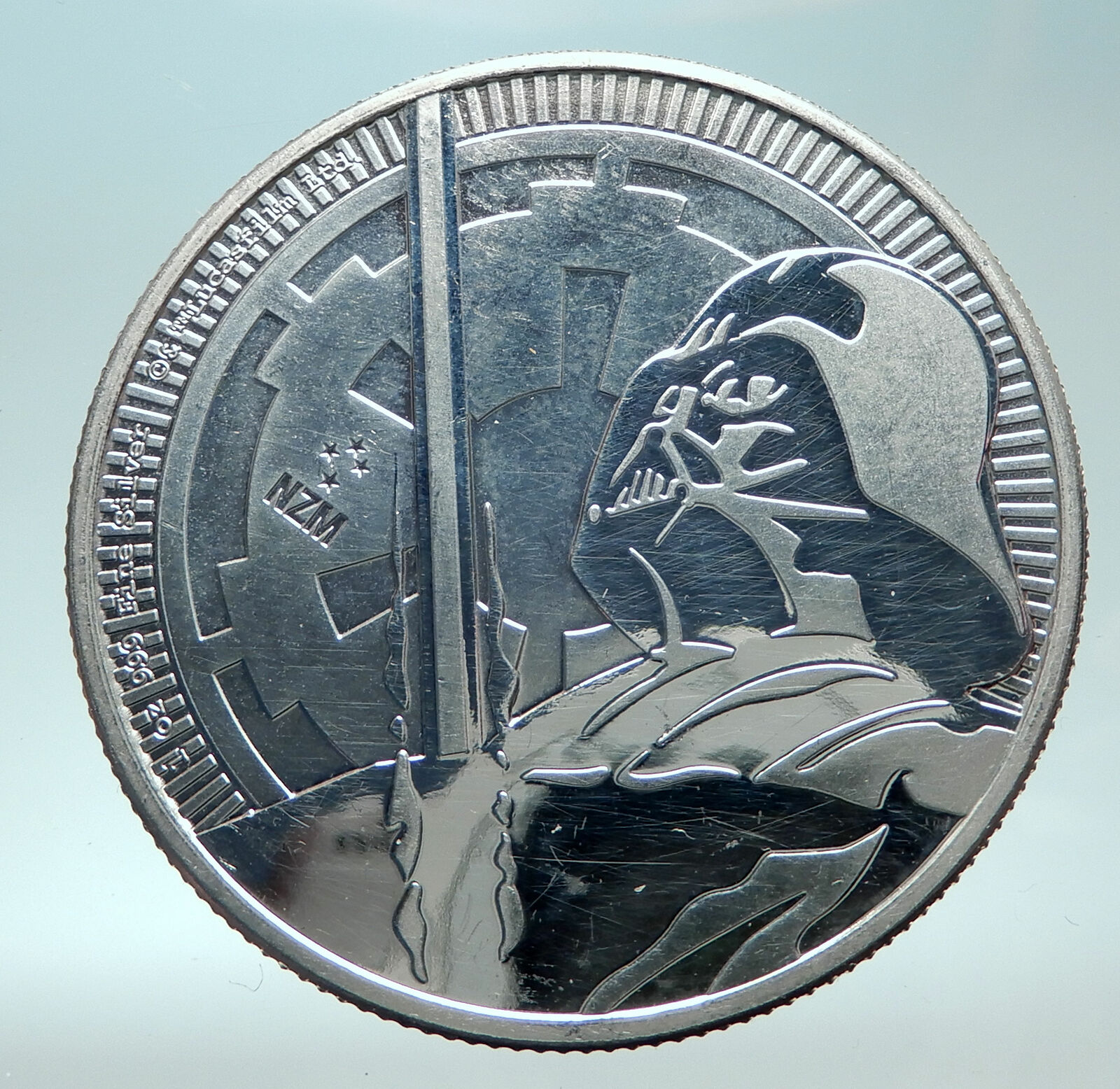|
Israel
Israel Philharmonic Orchestra 30 Years
1966 Bronze Medal 59mm (90.97 grams)
30 30th ANNIVERSARY THE ISRAEL PHILHARMONIC ORCHESTRA, French Horn and upper portion of cello to left of inscription.
DRONISLAW HUBERMAN . ARTURO TOSCANINI, Huberman and Toscanini facing right, stylized Menorah and tuning fork emblem upper right.
You are bidding on the exact item pictured, provided with a Certificate of Authenticity and Lifetime Guarantee of Authenticity.
 The Israel Philharmonic Orchestra (abbreviation IPO; Hebrew: התזמורת הפילהרמונית הישראלית, ha-Tizmoret ha-Filharmonit ha-Yisra’elit) is an Israeli symphony orchestra based in Tel Aviv. Its principal concert venue is Heichal HaTarbut. The Israel Philharmonic Orchestra (abbreviation IPO; Hebrew: התזמורת הפילהרמונית הישראלית, ha-Tizmoret ha-Filharmonit ha-Yisra’elit) is an Israeli symphony orchestra based in Tel Aviv. Its principal concert venue is Heichal HaTarbut.
The Israel Philharmonic Orchestra was founded as the Palestine Symphony Orchestra by violinist Bronisław Huberman in 1936, at a time of the dismissal of many Jewish musicians from European orchestras. Its inaugural concert took place in Tel Aviv on December 26, 1936, conducted by Arturo Toscanini. Its first principal conductor was William Steinberg.
Its general manager between 1938 and 1945 was Leo Kestenberg, who, like many of the orchestra members, was a German Jew forced out by the rise of Nazism and the persecution of Jews. During the Second World War, the orchestra performed 140 times before Allied soldiers, including a 1942 performance for soldiers of the Jewish Brigade at El Alamein. At the end of the war, it performed in recently liberated Belgium. In 1948, after the creation of the State of Israel, the orchestra was renamed as the Israel Philharmonic Orchestra.
In 1955, the Orchestra played for Pope Pius XII at the Vatican, in appreciation for the assistance the Pope had given to Jewish victims of Nazism during World War Two.
Particular conductors notable in the history of the orchestra have included Leonard Bernstein and Zubin Mehta. Bernstein maintained close ties with the orchestra from 1947, and in 1988, the IPO bestowed on him the title of Laureate Conductor, which he retained until his death in 1990. Mehta became the IPO’s Music Advisor in 1969. The IPO did not have a formal music director, but instead “music advisors”, until 1977, when Mehta was appointed the IPO’s first Music Director. In 1981, his title was elevated to Music Director for Life. In December 2016, the Israel Philharmonic announced that Mehta is to conclude his tenure as music director as of October 2019. Principal guest conductors of the orchestra have included Yoel Levi and Gianandrea Noseda.
With Mehta, the IPO has made a number of recordings for Decca. With Bernstein, the IPO recorded his own works and works of Igor Stravinsky, for Deutsche Grammophon. The IPO has also collaborated with Japanese composer Yoko Kanno in the soundtrack of the anime Macross Plus.
The initial concerts of the Palestine Orchestra in December 1936, conducted by Toscanini, featured the music of Richard Wagner. However, after the Kristallnacht pogroms in November 1938, the orchestra has maintained a de facto ban on Wagner’s work, due to that composer’s antisemitism and the association of his music with Nazi Germany.
The Secretary-General of the orchestra is Avi Shoshani. The IPO has a subscriber base numbering 26,000. Commentators have noted the musically conservative tastes of the subscriber base, although the IPO is dedicated to performing new works by Israeli composers, such as Avner Dorman.
Among the orchestra’s education initiatives are the Buchmann-Mehta School of Music, a partnership between the Israel Philharmonic Orchestra and Tel Aviv University. Created by Zubin Mehta and philanthropist Josef Buchmann to educate orchestral musicians to supply the artistic future of the IPO and other orchestras, the school is located on the university’s campus in Tel Aviv and works very closely with the IPO, including orchestral training programs, master classes with IPO guest artists and special concerts at the IPO’s halls. Several members of the IPO are BMSM alumni, while various IPO musicians serve as BMSM faculty members.
In 2007, Lahav Shani first appeared with the IPO as guest soloist. Starting in October 2013, he appeared as guest conductor with the orchestra each year. In January 2018, the IPO announced the appointment of Shani as its next music director, effective with the 2020-2021 season, a position he retains as at April 2022.
 Israell (/ˈɪzriəl, ˈɪzreɪəl/; Hebrew: יִשְׂרָאֵל; Arabic: إِسْرَائِيل), officially the State of Israel, is a country in the Middle East, on the southeastern shore of the Mediterranean Sea and the northern shore of the Red Sea. It has land borders with Lebanon to the north, Syria to the northeast, Jordan on the east, the Palestinian territories of the West Bank and Gaza Strip to the east and west, respectively, and Egypt to the southwest. The country contains geographically diverse features within its relatively small area. Israel’s economic and technological center is Tel Aviv, while its seat of government and proclaimed capital is Jerusalem, although the state’s sovereignty over Jerusalem has only partial recognition. Israell (/ˈɪzriəl, ˈɪzreɪəl/; Hebrew: יִשְׂרָאֵל; Arabic: إِسْرَائِيل), officially the State of Israel, is a country in the Middle East, on the southeastern shore of the Mediterranean Sea and the northern shore of the Red Sea. It has land borders with Lebanon to the north, Syria to the northeast, Jordan on the east, the Palestinian territories of the West Bank and Gaza Strip to the east and west, respectively, and Egypt to the southwest. The country contains geographically diverse features within its relatively small area. Israel’s economic and technological center is Tel Aviv, while its seat of government and proclaimed capital is Jerusalem, although the state’s sovereignty over Jerusalem has only partial recognition.
 <pisrael has="" evidence="" of="" the="" earliest="" migration="" hominids="" out="" africa.="" canaanite="" tribes="" are="" archaeologically="" attested="" since="" middle="" bronze="" age,="" while="" kingdoms="" israel="" and="" judah="" emerged="" during="" iron="" age.="" neo-assyrian="" empire="" destroyed="" around="" 720="" bce.="" was="" later="" conquered="" by="" babylonian,="" persian="" hellenistic="" empires="" had="" existed="" as="" jewish="" autonomous="" provinces.="" successful="" maccabean="" revolt="" led="" to="" an="" independent="" hasmonean="" kingdom="" 110="" bce,="" which="" in="" 63="" bce="" however="" became="" a="" client="" state="" roman="" republic="" that="" subsequently="" installed="" herodian="" dynasty="" 37="" 6="" ce="" created="" province="" judea.="" judea="" lasted="" until="" failed="" revolts="" resulted="" widespread="" destruction,="" expulsion="" population="" renaming="" region="" from="" Iudaea to Syria Palaestina.[34] Jewish presence in the region has persisted to a certain extent over the centuries. In the 7th century the Levant was taken from the Byzantine Empire by the Arabs and remained in Muslim control until the First Crusade of 1099, followed by the Ayyubid conquest of 1187. The Mamluk Sultanate of Egypt extended its control over the Levant in the 13th century until its defeat by the Ottoman Empire in 1517. During the 19th century, national awakening among Jews led to the establishment of the Zionist movement in the diaspora followed by waves of immigration to Ottoman and later British Palestine. <pisrael has="" evidence="" of="" the="" earliest="" migration="" hominids="" out="" africa.="" canaanite="" tribes="" are="" archaeologically="" attested="" since="" middle="" bronze="" age,="" while="" kingdoms="" israel="" and="" judah="" emerged="" during="" iron="" age.="" neo-assyrian="" empire="" destroyed="" around="" 720="" bce.="" was="" later="" conquered="" by="" babylonian,="" persian="" hellenistic="" empires="" had="" existed="" as="" jewish="" autonomous="" provinces.="" successful="" maccabean="" revolt="" led="" to="" an="" independent="" hasmonean="" kingdom="" 110="" bce,="" which="" in="" 63="" bce="" however="" became="" a="" client="" state="" roman="" republic="" that="" subsequently="" installed="" herodian="" dynasty="" 37="" 6="" ce="" created="" province="" judea.="" judea="" lasted="" until="" failed="" revolts="" resulted="" widespread="" destruction,="" expulsion="" population="" renaming="" region="" from="" Iudaea to Syria Palaestina.[34] Jewish presence in the region has persisted to a certain extent over the centuries. In the 7th century the Levant was taken from the Byzantine Empire by the Arabs and remained in Muslim control until the First Crusade of 1099, followed by the Ayyubid conquest of 1187. The Mamluk Sultanate of Egypt extended its control over the Levant in the 13th century until its defeat by the Ottoman Empire in 1517. During the 19th century, national awakening among Jews led to the establishment of the Zionist movement in the diaspora followed by waves of immigration to Ottoman and later British Palestine.
 In 1947, the United Nations adopted a Partition Plan for Palestine recommending the creation of independent Arab and Jewish states and an internationalized Jerusalem. The plan was accepted by the Jewish Agency, and rejected by Arab leaders. The following year, the Jewish Agency declared the independence of the State of Israel, and the subsequent 1948 Arab-Israeli War saw Israel’s establishment over most of the former Mandate territory, while the West Bank and Gaza were held by neighboring Arab states. Israel has since fought several wars with Arab countries, and it has since 1967 occupied territories including the West Bank, Golan Heights and the Gaza Strip (still considered occupied after 2005 disengagement, although some legal experts dispute this claim)..[41][42][43][fn 4] It extended its laws to the Golan Heights and East Jerusalem, but not the West Bank. Israel’s occupation of the Palestinian territories is the world’s longest military occupation in modern times.[fn 4][49] Efforts to resolve the Israeli-Palestinian conflict have not resulted in a final peace agreement. However, peace treaties between Israel and both Egypt and Jordan have been signed. In 1947, the United Nations adopted a Partition Plan for Palestine recommending the creation of independent Arab and Jewish states and an internationalized Jerusalem. The plan was accepted by the Jewish Agency, and rejected by Arab leaders. The following year, the Jewish Agency declared the independence of the State of Israel, and the subsequent 1948 Arab-Israeli War saw Israel’s establishment over most of the former Mandate territory, while the West Bank and Gaza were held by neighboring Arab states. Israel has since fought several wars with Arab countries, and it has since 1967 occupied territories including the West Bank, Golan Heights and the Gaza Strip (still considered occupied after 2005 disengagement, although some legal experts dispute this claim)..[41][42][43][fn 4] It extended its laws to the Golan Heights and East Jerusalem, but not the West Bank. Israel’s occupation of the Palestinian territories is the world’s longest military occupation in modern times.[fn 4][49] Efforts to resolve the Israeli-Palestinian conflict have not resulted in a final peace agreement. However, peace treaties between Israel and both Egypt and Jordan have been signed.
In its Basic Laws, Israel defines itself as a Jewish and democratic state. Israel is a representative democracy with a parliamentary system, proportional representation and universal suffrage. The prime minister is head of government and the Knesset is the legislature. Israel is a developed country and an OECD member, with the 32nd-largest economy in the world by nominal gross domestic product as of 2017. The country benefits from a highly skilled workforce and is among the most educated countries in the world with one of the highest percentages of its citizens holding a tertiary education degree. Israel has the highest standard of living in the Middle East, and has one of the highest life expectancies in the world.
|





 The Israel Philharmonic Orchestra (abbreviation IPO; Hebrew: התזמורת הפילהרמונית הישראלית, ha-Tizmoret ha-Filharmonit ha-Yisra’elit) is an Israeli symphony orchestra based in Tel Aviv. Its principal concert venue is Heichal HaTarbut.
The Israel Philharmonic Orchestra (abbreviation IPO; Hebrew: התזמורת הפילהרמונית הישראלית, ha-Tizmoret ha-Filharmonit ha-Yisra’elit) is an Israeli symphony orchestra based in Tel Aviv. Its principal concert venue is Heichal HaTarbut. Israell (/ˈɪzriəl, ˈɪzreɪəl/; Hebrew: יִשְׂרָאֵל; Arabic: إِسْرَائِيل), officially the State of Israel, is a country in the Middle East, on the southeastern shore of the Mediterranean Sea and the northern shore of the Red Sea. It has land borders with Lebanon to the north, Syria to the northeast, Jordan on the east, the Palestinian territories of the West Bank and Gaza Strip to the east and west, respectively, and Egypt to the southwest. The country contains geographically diverse features within its relatively small area. Israel’s economic and technological center is Tel Aviv, while its seat of government and proclaimed capital is Jerusalem, although the state’s sovereignty over Jerusalem has only partial recognition.
Israell (/ˈɪzriəl, ˈɪzreɪəl/; Hebrew: יִשְׂרָאֵל; Arabic: إِسْرَائِيل), officially the State of Israel, is a country in the Middle East, on the southeastern shore of the Mediterranean Sea and the northern shore of the Red Sea. It has land borders with Lebanon to the north, Syria to the northeast, Jordan on the east, the Palestinian territories of the West Bank and Gaza Strip to the east and west, respectively, and Egypt to the southwest. The country contains geographically diverse features within its relatively small area. Israel’s economic and technological center is Tel Aviv, while its seat of government and proclaimed capital is Jerusalem, although the state’s sovereignty over Jerusalem has only partial recognition. <pisrael has="" evidence="" of="" the="" earliest="" migration="" hominids="" out="" africa.="" canaanite="" tribes="" are="" archaeologically="" attested="" since="" middle="" bronze="" age,="" while="" kingdoms="" israel="" and="" judah="" emerged="" during="" iron="" age.="" neo-assyrian="" empire="" destroyed="" around="" 720="" bce.="" was="" later="" conquered="" by="" babylonian,="" persian="" hellenistic="" empires="" had="" existed="" as="" jewish="" autonomous="" provinces.="" successful="" maccabean="" revolt="" led="" to="" an="" independent="" hasmonean="" kingdom="" 110="" bce,="" which="" in="" 63="" bce="" however="" became="" a="" client="" state="" roman="" republic="" that="" subsequently="" installed="" herodian="" dynasty="" 37="" 6="" ce="" created="" province="" judea.="" judea="" lasted="" until="" failed="" revolts="" resulted="" widespread="" destruction,="" expulsion="" population="" renaming="" region="" from="" Iudaea to Syria Palaestina.[34] Jewish presence in the region has persisted to a certain extent over the centuries. In the 7th century the Levant was taken from the Byzantine Empire by the Arabs and remained in Muslim control until the First Crusade of 1099, followed by the Ayyubid conquest of 1187. The Mamluk Sultanate of Egypt extended its control over the Levant in the 13th century until its defeat by the Ottoman Empire in 1517. During the 19th century, national awakening among Jews led to the establishment of the Zionist movement in the diaspora followed by waves of immigration to Ottoman and later British Palestine.
<pisrael has="" evidence="" of="" the="" earliest="" migration="" hominids="" out="" africa.="" canaanite="" tribes="" are="" archaeologically="" attested="" since="" middle="" bronze="" age,="" while="" kingdoms="" israel="" and="" judah="" emerged="" during="" iron="" age.="" neo-assyrian="" empire="" destroyed="" around="" 720="" bce.="" was="" later="" conquered="" by="" babylonian,="" persian="" hellenistic="" empires="" had="" existed="" as="" jewish="" autonomous="" provinces.="" successful="" maccabean="" revolt="" led="" to="" an="" independent="" hasmonean="" kingdom="" 110="" bce,="" which="" in="" 63="" bce="" however="" became="" a="" client="" state="" roman="" republic="" that="" subsequently="" installed="" herodian="" dynasty="" 37="" 6="" ce="" created="" province="" judea.="" judea="" lasted="" until="" failed="" revolts="" resulted="" widespread="" destruction,="" expulsion="" population="" renaming="" region="" from="" Iudaea to Syria Palaestina.[34] Jewish presence in the region has persisted to a certain extent over the centuries. In the 7th century the Levant was taken from the Byzantine Empire by the Arabs and remained in Muslim control until the First Crusade of 1099, followed by the Ayyubid conquest of 1187. The Mamluk Sultanate of Egypt extended its control over the Levant in the 13th century until its defeat by the Ottoman Empire in 1517. During the 19th century, national awakening among Jews led to the establishment of the Zionist movement in the diaspora followed by waves of immigration to Ottoman and later British Palestine.  In 1947, the United Nations adopted a Partition Plan for Palestine recommending the creation of independent Arab and Jewish states and an internationalized Jerusalem. The plan was accepted by the Jewish Agency, and rejected by Arab leaders. The following year, the Jewish Agency declared the independence of the State of Israel, and the subsequent 1948 Arab-Israeli War saw Israel’s establishment over most of the former Mandate territory, while the West Bank and Gaza were held by neighboring Arab states. Israel has since fought several wars with Arab countries, and it has since 1967 occupied territories including the West Bank, Golan Heights and the Gaza Strip (still considered occupied after 2005 disengagement, although some legal experts dispute this claim)..[41][42][43][fn 4] It extended its laws to the Golan Heights and East Jerusalem, but not the West Bank. Israel’s occupation of the Palestinian territories is the world’s longest military occupation in modern times.[fn 4][49] Efforts to resolve the Israeli-Palestinian conflict have not resulted in a final peace agreement. However, peace treaties between Israel and both Egypt and Jordan have been signed.
In 1947, the United Nations adopted a Partition Plan for Palestine recommending the creation of independent Arab and Jewish states and an internationalized Jerusalem. The plan was accepted by the Jewish Agency, and rejected by Arab leaders. The following year, the Jewish Agency declared the independence of the State of Israel, and the subsequent 1948 Arab-Israeli War saw Israel’s establishment over most of the former Mandate territory, while the West Bank and Gaza were held by neighboring Arab states. Israel has since fought several wars with Arab countries, and it has since 1967 occupied territories including the West Bank, Golan Heights and the Gaza Strip (still considered occupied after 2005 disengagement, although some legal experts dispute this claim)..[41][42][43][fn 4] It extended its laws to the Golan Heights and East Jerusalem, but not the West Bank. Israel’s occupation of the Palestinian territories is the world’s longest military occupation in modern times.[fn 4][49] Efforts to resolve the Israeli-Palestinian conflict have not resulted in a final peace agreement. However, peace treaties between Israel and both Egypt and Jordan have been signed. 




